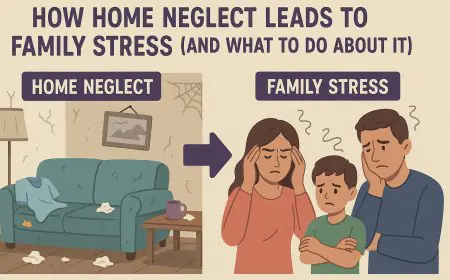How Anxiety Impacts Your Daily Life and What You Can Do About It
Anxiety

Anxiety is a common mental health condition that impacts daily life. It affects people in different ways but is typically marked by excessive worry and fear, which often influences thoughts, emotions, and behaviors. Anxiety may stem from stressors, personal experiences, or underlying mental health conditions. Recognizing the effects of anxiety and finding strategies to manage it is key in improving well-being and enhancing quality of life.
Anxiety and Your Health
Anxiety manifests through both physical and emotional symptoms. Physically, it may cause a racing heart, muscle tension, headaches, stomach problems, and fatigue. These physical manifestations make it difficult to go about daily tasks. For example, low energy and discomfort may make it hard to focus or complete work.
Emotionally, this condition leads to feelings of restlessness, irritability, or a sense of impending doom. Chronic anxiety may cause a heightened sense of unease that doesn’t easily go away. Prolonged emotional strain can also affect social interactions, leading to discomfort in social settings. Over time, this emotional burden may result in avoidance behaviors, where people steer clear of certain activities or situations because they feel too overwhelming.
Challenges in Professional and Academic Environments
For those managing anxiety, professional and academic settings might be especially challenging. Anxiety often affects concentration, decision-making, and productivity. Difficulty focusing or retaining information, particularly under pressure, can impact work performance or academic achievements. Social situations like team projects, presentations, or public speaking become common sources of anxiety. The fear of being judged or criticized by peers or colleagues may worsen anxiety, making it harder to engage with others or participate in work-related tasks. This often results in avoidance behaviors, where individuals withdraw from opportunities for career or academic growth to avoid the discomfort associated with those situations.
Coping Mechanisms and Strategies
Managing this condition requires a multifaceted approach, involving both behavioral changes and lifestyle modifications. Clinical interventions, such as therapy or medication, may be necessary for some, but many individuals often benefit from additional strategies to manage their symptoms.
-
Physical Activity: Engaging in regular physical activity such as walking, yoga, or aerobic exercises helps alleviate the physical symptoms of anxiety. Exercise helps regulate heart rate, reduce muscle tension, and improve overall mood.
-
Mindfulness Practices: Mindfulness meditation and breathing exercises are valuable techniques for managing anxiety. These practices help individuals focus on the present moment, reduce stress, and reframe negative thought patterns.
-
Structured Routines: Developing predictable routines for work, self-care, and leisure activities help create a sense of balance and stability. Knowing what to expect each day can reduce feelings of being overwhelmed and make it easier to manage anxiety.
-
Social Support: Connecting with trusted friends, family members, or support groups can provide emotional reassurance and decrease feelings of isolation. Engaging with others who share similar experiences can foster mutual support and encourage healthier coping mechanisms.
-
Professional Help: Mental health professionals, such as psychologists, psychiatrists, and therapists, offer valuable resources for managing anxiety. Therapy techniques, such as cognitive-behavioral therapy (CBT), can help individuals identify and challenge negative thinking patterns.
Enhancing Daily Life While Managing Anxiety
By recognizing specific triggers and implementing coping strategies, individuals can improve their overall quality of life. Taking proactive steps to manage anxiety, such as seeking professional guidance, practicing self-care, and making lifestyle changes, contribute to long-term well-being. Addressing it with a combination of tools and support can empower individuals to face challenges more effectively.
What's Your Reaction?























































































